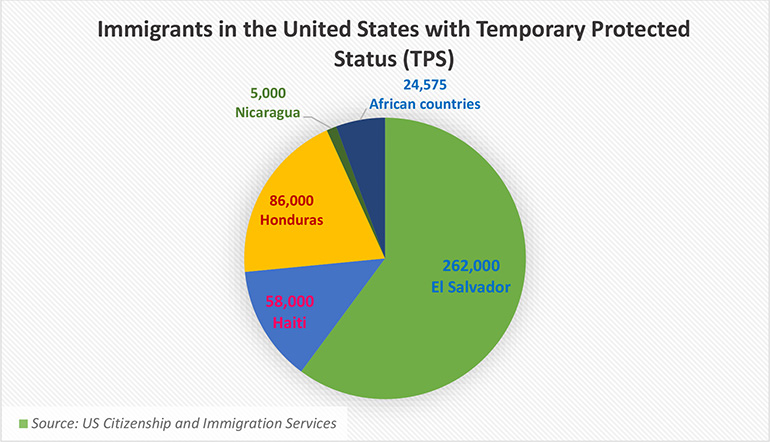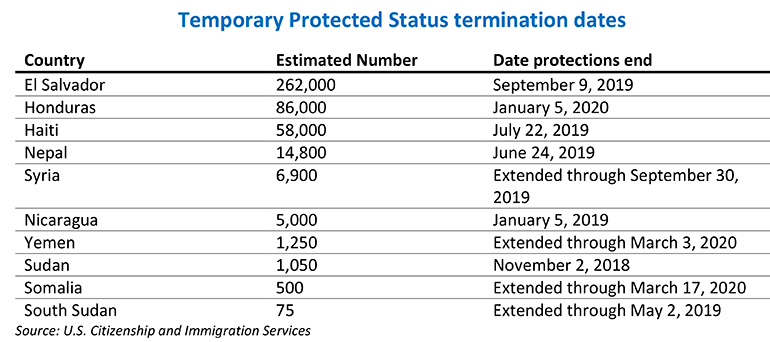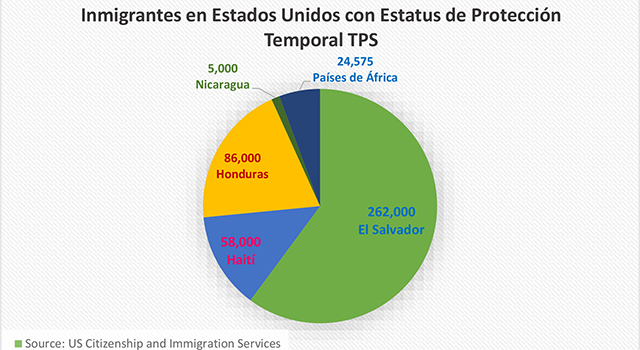By Rocio Granados - La Voz Catolica

Photographer: Rocio Granados
MIAMI | Ines, 72, worries about not finding work because of her age. She lives alone and is about to lose her Temporary Protected Status, which allows her to live and work legally in the United States.
Ines, whose name has been changed to protect her identity, left her native Honduras in 1990 for economic reasons. Since her arrival in the U.S., she has worked cleaning houses. She has paid taxes for 17 years, but recently her Social Security pension was cut, and although she receives food stamps and health insurance, she barely manages to pay rent.
She has a throat ailment, but what concerns her more is not knowing what will happen to her after Jan. 5, 2020, when her TPS expires. She was able to renew it before the Trump administration announced last May that it was canceling it for all Hondurans.
Returning to Honduras, after almost 20 years away, is not a practical option for Ines. “It’s not that I don’t want to return to my home country, it’s that I no longer have anything over there, no home, nothing.” The violent conditions in Central America also make her fearful for her life.
When her TPS expires, “I’ll have to live on the street,” Ines said, since she will probably not be able to collect her retirement after becoming undocumented.
She is one of about 86,000 Hondurans who could lose their protection despite a court ruling Oct. 3 that temporarily halted the cancellation of TPS for recipients from El Salvador, Nicaragua, Haiti and the Sudan. Federal Judge Edward Chen of California ruled that the decision to cancel TPS could be a violation of the Equal Protection Clause of the U.S. Constitution.
The judge noted there is substantial proof that the government’s decision to cancel the program was motivated by racial prejudice. He added that the termination of the program would cause “irreparable damage” to immigrants who would have to abandon the U.S., and their families.
This hopeful ruling resulted from a class action lawsuit filed last March, and does not include recipients from Honduras because, at the time, TPS had not been canceled for them. But it is expected that the same legal defense used by other countries could be used by the Hondurans.
The government has appealed Judge Chen’s decision but a hearing date has not been scheduled, meaning TPS permits have been automatically renewed for six or more months.
The court has not ordered that TPS be reinstated. The judicial order only means that TPS will remain in effect while the case winds its way through the courts.
RENEW YOUR STATUS
Immigration activists are advising TPS recipients who have not renewed their enrollment to do so as soon as possible.
“This is their last opportunity. If they don’t take advantage, they will be completely unprotected,” said a press release from Marleine Bastien, executive director of then Family Action Movement Network, a Miami-based non-profit organization for the Haitian community.
But to re-enroll, recipients must demonstrate a valid reason as to why they did not do so before their enrollment expired.
“It is recommended that individuals in that situation look for a lawyer to determine if there is another type of benefit that can help them,” said Ana Quirós, a lawyer with Catholic Legal Services in the Archdiocese of Miami.
She added that they have seen a good number of clients who have never spoken to a lawyer and are not aware that they might be eligible to become legal permanent residents.
For example, being a crime victim could grant them a type U visa. Or a family member who is an American citizen can claim them as immediate beneficiaries. But those cases must be examined by a lawyer.
Quirós stressed that “TPS will never result in residency,” with the exception of those living in Kentucky, Michigan, Ohio, and Tennessee �the Sixth Circuit� and Alaska, Washington, Oregon, California, Montana, Arizona, Idaho and Nevada �the Ninth Circuit� where TPS is viewed as permission to enter the country. “But either way these people have to be relatives of other people who can claim them,” Quirós pointed out.
If the program ends, those who would be most affected are the children of TPS recipients, who are most likely American citizens. It is estimated that about 273,000 children will be left alone in the U.S. or will have to move with their parents to countries they do not know, whose language, in most cases, they do not speak, and which have the highest incidences of violence and criminal activity in the Western Hemisphere.
At a press conference last June with immigrant advocacy groups, Miami Archbishop Thomas Wenski said that deporting immigrants who will lose their TPS status “would be a tragedy for the entire country,” since those affected would be immigrants with American children, or those married to citizens of this country.
He called on Congress to look for “a permanent solution” for TPS recipients, so that the drama of the separation of families at the Mexican border does not repeat itself.
ECONOMIC IMPACT
It would also result in economic losses, since research conducted by the Center for Migration Studies highlighted that 80 percent of TPS recipients work and pay taxes.
TPS currently protects against deportation, and grants work permits, to about 300,000 immigrants from Honduras, Nicaragua, El Salvador, Haiti, Nepal, Somalia, Southern Sudan, Sudan, Syria and Yemen. It was created in 1990 to protect individuals from countries beset by natural disasters and/or armed conflicts who were already living in the U.S.
In November 2017, the U.S. government announced the termination of the program, arguing that conditions in those countries have improved. But a report by the U.S. State Department seemed to contradict that argument, noting that conditions in Nicaragua, El Salvador, Haiti and Honduras were not conducive to receiving those who would be forced to return to their home countries.
According to U.S. Citizenship and Immigration Services, the largest affected groups with TPS are Salvadorans (262,000), Hondurans (86,000), Haitians (58,000) and Nicaraguans (5,000).
FOR MORE INFORMATION
- Catholic Legal Services and other non-profits offer free clinics and “Know your Rights” sessions every weekend in different locations throughout South Florida, with immigration lawyers available for consultations.
- To contact Catholic Legal Services of the Archdiocese of Miami, go to: ww.cclsmiami.org or visit their main office, located at: 28 West Flagler, 10th Floor, Miami, FL 33130.
- The telephone number is 305-373-1073.
WANTED: PRO BONO LAWYERS
If you are interested in volunteering or if you are a lawyer without a specialization in immigration, Catholic Legal Services will train you. For more information, visit www.cclsmiami.org.

Photographer: Rocio Granados

